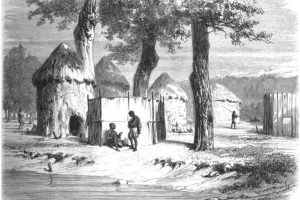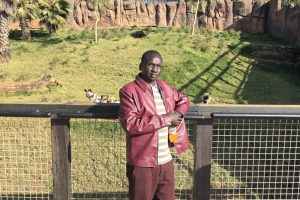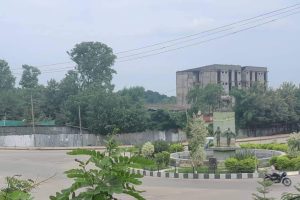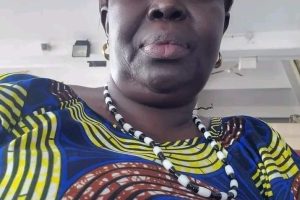By Okech Francis
JUBA
When rebel groups loyal to sacked vice president Riek Machar attacked Malakal, capital of South Sudan’s Upper Nile State, Lujang Michael Modi lost more than just his home.
“As I returned home, I could see people running around and shouting,” he recounted. “I could see my house burning.”
In a matter of minutes, Modi had not only lost his home and valuables, but also his anti-retroviral drugs (ARVs), which, as an AIDS patient, he can’t do without.
“It was my only house. Had it not been for the fact that it was in that same house that I kept my medicine, I wouldn’t have lost hope,” he told Anadolu Agency.
“Seeing my house burning with everything inside, including the medicine, I thought of committing suicide. I was so heartbroken; I just wished to die,” said an emotionally shaken Modi.
“The loss of my drugs meant I had to start from zero again and wait for 14 days before I could get other drugs,” he explained.
“This shouldn’t have been a problem if I had been in Juba by then, but in Malakal it was impossible,” he added.
Realizing he would not get any quick help in Malakal where rebels had destroyed everything – including the Malakal Teaching Hospital – Modi decided to travel to capital Juba in hopes of finding assistance.
“I, together with other people, started walking. It took us two weeks to reach here,” he recalled.
In Juba, it took him three weeks to get his hands on ARVs.
“I know the dangers of missing my medicine, even for a day. Imagine how I was stressed for three weeks. I still feel very weak now,” Modi said.
South Sudan has been shaken by violence since last December, when President Salva Kiir accused sacked Machar of standing behind a failed coup attempt.
The violence has already claimed more than 10,000 lives.
The U.N. estimates that some 3.7 million South Sudanese are now “severely food insecure,” while more than 867,000 have been displaced by the violence.
-Not alone-
Another patient, who didn’t want to be named, said that accessing the hospital in Juba had been a major problem at the outset of the conflict last December.
“There were some moments when I felt distressed because there were few people attending to us. I had to wait long before I got my drugs,” he told AA, adding that the doses provided had been insufficient.
“If you came, they would give you [enough] for a week and tell you to come back later,” the patient recalled.
Hillary Lasuba, a professional counselor at Juba Teaching Hospital’s HIV/AIDS department, said many HIV patients from conflict areas had been affected.
“Some lost their drugs and had to wait too long before they could get another dose of medicine, since they fear travelling due to security reasons,” Lasuba told AA.
He [He or She?] noted that many of those who came to his department had already lost their medical records and documents.
“To find out which [ARV] combinations they were on, we need to begin the test afresh, and this takes a long time – two weeks at least for them to get the ARVs,” he said.
Lasuba added that, once they were back on the drugs, many patients experienced negative side effects, such as skin irritation and vomiting.
“The good thing is that the hospital welcomes them and tries to help them get back on their drugs,” he said.
The doctor went on to lament that regular ARV shipments had not been reaching the hospital on schedule.
“The drugs sometimes take a week to arrive. The good thing is that when they arrive, they last for three months,” he added.
Habib Daffalla M. Awongo, the general director for Program Coordination, South Sudan HIV/AIDS Commission (SSAC), said about 60 percent of health facilities in the conflict affected areas are not functioning.
Dr. Esterina Novello, chairperson of the South Sudan Aids Commission, recently offered an association serving people living with HIV, a check from President Salva Kiir worth nearly $62,500.
“The government will see to it that all people living with HIV have access to treatment,” Novello said. “We shall also continue with the campaigns against the epidemic in all ten states of the country.”
englishnews@aa.com.tr










